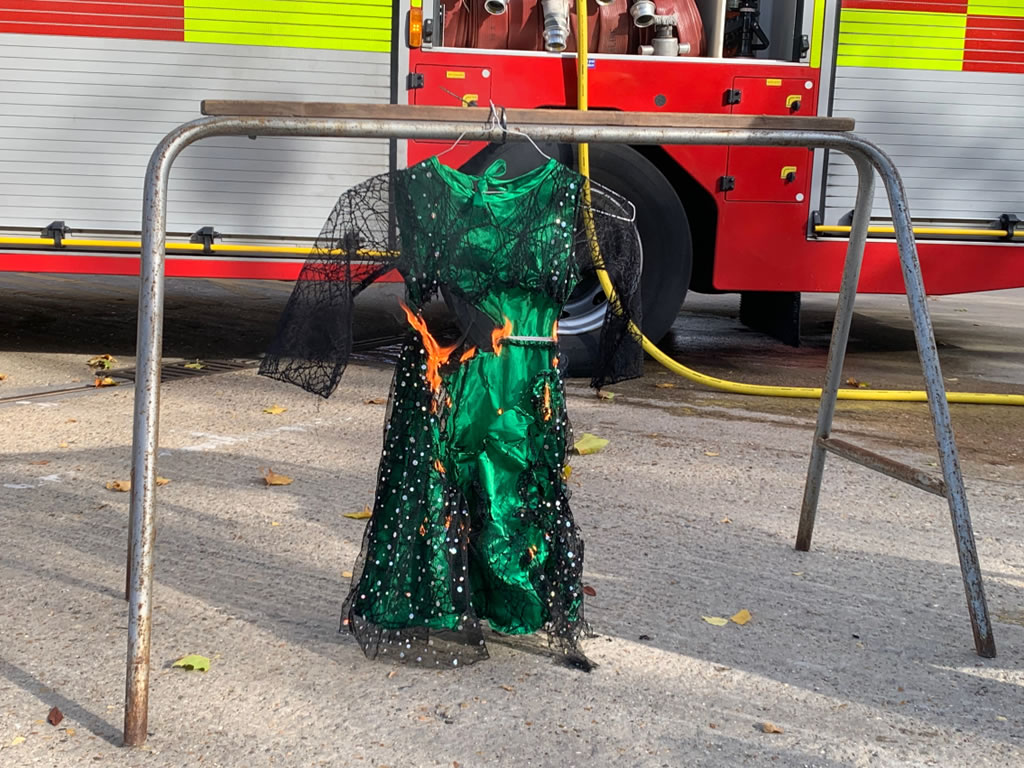As October half-term approaches, Suffolk Trading Standards is urging parents to be cautious when purchasing Halloween products to ensure these don’t pose a risk of death or serious injury.
An estimated £687 million will be spent by UK consumers on Halloween products this autumn, with the holiday growing in popularity each year.
But this also increases the chance of parents unwittingly buying substandard goods for their children, such as highly flammable costumes, treacherous toys or sweets that do not display the correct allergens information.
Suffolk Trading Standards have witnessed this first-hand, having recently seized several hazardous Halloween items, including an inflatable spider game and Halloween hopper, both of which were for sale on Amazon.
Phthalates, a group of chemicals that can cause damage to the liver, kidneys and lungs, were present on the inflatable spider game, which also had long cords that could pose a risk of strangulation.
The Halloween hopper contained a zip that broke off during a tension test, proving potentially deadly if swallowed by a small child.
Neither of the items had a CE or UKCA mark, used to indicate that a product has been assessed by the manufacturer and deemed to meet safety, health and environmental protection requirements.
Graham Crisp, Head of Suffolk Trading Standards, commented:
“As a parent myself, I know how expensive Halloween can be, with children often asking for costumes, sweets, and other treats during the half-term.
“This can tempt people to look for cheaper goods online, not realising the potential dangers of purchasing products which, in some cases, do not meet the UK’s stringent safety requirements.
“It is worth remembering that no bargain is worth the risk of fire, injury or even death.”
Councillor Andrew Reid, Cabinet Member for Public Health and Public Protection, added:
“What seems like a good deal at first may have scary consequences this Halloween, as dodgy companies capitalise on the holiday by selling substandard items.
“Our Trading Standards team remains committed to ridding the marketplace of these dangerous goods and I am pleased that they have successfully stopped the sale of almost 600 deadly Halloween toys recently.
“Consumers can also protect themselves by only shopping at reputable retailers and checking that products contain safety labels and markings to show that they have undergone rigorous testing.”
When buying Halloween costumes, parents can look for a flame-resistant label and check that any packaging and labels contain the manufacturer’s name or registered trademark, along with safety instructions. Doing so will help ensure the safety of a child in the event of a fire while they are wearing the costume.
Those planning to hand out Halloween treats should be allergens aware and try to give out packaged sweets and chocolates where possible to enable children to know what they are eating and avoid becoming unwell from something they are allergic to.
Further information on this and other safety precautions can be found at www.suffolk.gov.uk/wintermatters.
